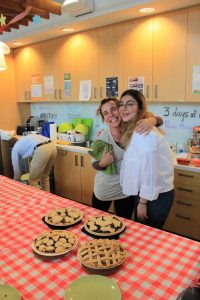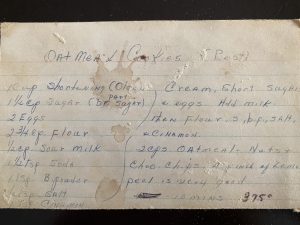There is an NPR podcast called “Hidden Brain”, where social psychologist Shankar Vedantam describes how eating together increases trust and cooperation.
The truth is, sharing food is a sacred human ritual that traverses time and bridges cultures. It is a ritual that unites us. Food is central to our grieving when we lose a loved one. Food trains have emerged as a way to shore up families with new babies. We share food as a celebratory event, or to simply establish friendships. Sharing food “increases trust and cooperation”.
It turns out that first year students are doing a lot of becoming. According to Upcraft et al, developing academic competence is just a small part of what transition to university or college entails. Young folks are also exploring identity, thinking about careers, exploring faith, and developing civic responsibility, among other pursuits that are fundamentally important to this process. An important one is learning to establish and maintain relationships.
I have long invited (lured) students to come to office hours with the promise of food. Not only does this “increase trust and cooperation”, but it gives students an easy excuse to show up without fanfare or premeditated questions. Just to show up, because they were invited to pull up a chair.
I’ve continued this tradition in our Collegia where I often show up with ingredients and spontaneously invite students to bake with me. The conversations we have while distracted with food are easy and important. When I teach a small 3rd year course in Human Ecology, we create a food calendar and share and learn about foods that are important to each of us. This small act really does increase trust and cooperation in this group.

I will leave this post with a recipe from my grandmother, who grew up on a Mennonite farm in the 1930s. I invite you to pull up a virtual chair.
